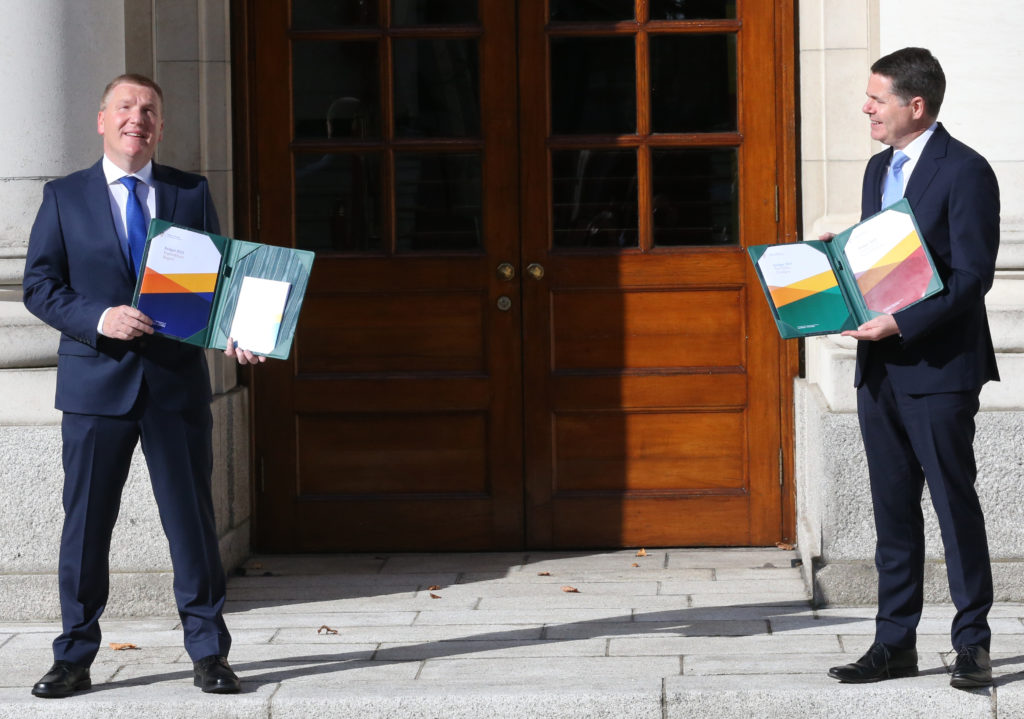THE IRISH government has today unveiled the biggest budget in the history of the State.
Its primary focus will be tackling the continued threat of Covid-19 and the threat of a no-deal Brexit.
"We have never experienced a challenge like this, but equally Ireland has never delivered such a strong response," said Minister for Finance Paschal Donohoe as he made his budget speech to the Dáil at the Convention Centre in Dublin.
Mr Donohoe stressed that protecting employment and increasing our public health care capacity was the priority.
The 'cornerstone' of the Government's budget is a €3.4 billion recovery fund, in response to Covid-19 and Brexit, along with a €1.6 billion spend on capital programmes, and €8.5bn set aside for public services hampered by Covid-19.
Minister Donohoe admitted that 320,000 jobs are expected to be lost this year, but that 155,000 new positions will be created in 2021.
"From the ashes of the pandemic together we will build a stronger and more resilient Ireland," he said.
 Fine Gael Minister for Finance, Paschal Donohoe TD and Fianna Fail Minister for Public Expenditure and Reform, Michael McGrath TD(L) on the steps at Government Buildings for their joint press conference for Budget 2021. Its the first time in Irish history that both parties have worked together to present a budget.
Fine Gael Minister for Finance, Paschal Donohoe TD and Fianna Fail Minister for Public Expenditure and Reform, Michael McGrath TD(L) on the steps at Government Buildings for their joint press conference for Budget 2021. Its the first time in Irish history that both parties have worked together to present a budget.Mr Donohoe added that because of the problems the hospitality and tourism sectors were facing, VAT for them would be reduced to 9% from 13.5% from 1 November until December 2021.
The wage subsidy scheme supporting businesses will continue in a slightly altered form beyond next March, while businesses will be able to claim a weekly payment of €5,000 while closed due to Government Covid-19 restrictions.
Spending to support the economy will lead to a predicted deficit of €20.5 billion next year.
This would mean a national debt of €219bn or 108% of national wealth.
The hospitality sector will be supported with a VAT reduction from 13.5 to nine per cent.
Carbon tax will be increased to €33.50 per tonne, up from €26, and continue to increase each year until it hits €100 per tonne.
Meanwhile, cigarettes will increase by 50 cent to an average of €14 per packet, while a third motor tax band will be introduced from next January.

